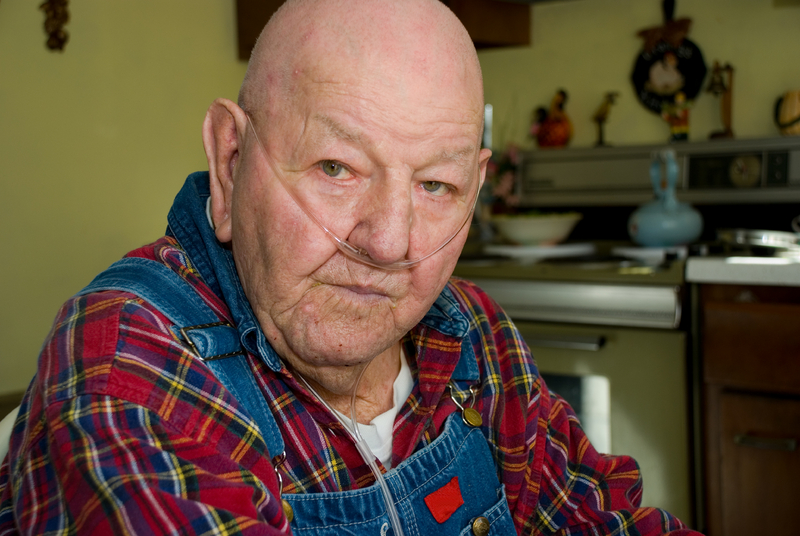Mr. Smith takes short quick breaths between statements. He has oxygen tubing wrapped over his ears and in his nose. He is trying to explain how much he needs to be able to stay in his home.
He believes the air in his home is easier to breathe; easier than the air outdoors, let alone in a hospital or nursing home. He has concerns about how he will be able to care for his cat since he knows he has good days and bad days with his COPD.
When I sat down with Mr. Bob, I explained how we train our home health aides to pay special attention to an oxygen client’s energy level. If we do our job well he should still have the ability to carry on a conversation with family when they arrive in the evening; possibly play a hand of cards or even go out for dinner. We will make a quick call to his primary doctor when we see a trend of bad days. This can often times prevent pneumonia and a hospitalization.
We also work hard to keep the home free of dust and safety risks. We spend time making sure filters are cleaned regularly on the concentrator and for the house. Clutter is kept to a minimum and the oxygen tubing stays untangled and out of the way.
Mr. Smith was also concerned with the fact that he cannot eat large meals anymore. He rarely eats more than a half sandwich with his cup of coffee. It is just too much effort to stay at the table breathing between bites of food. He gets anxious at times too. We plan to spend extra time prepping meals ahead of time to help his anxiety.
The 4 hours of help we will provide each morning is less expensive for him than moving to an assisted living and he gets to keep his cat. If you know someone like Mr. Bob who needs our care and assistance, please call and give us a referral: 877-743-4434.
Written by, Daniel Story RN


